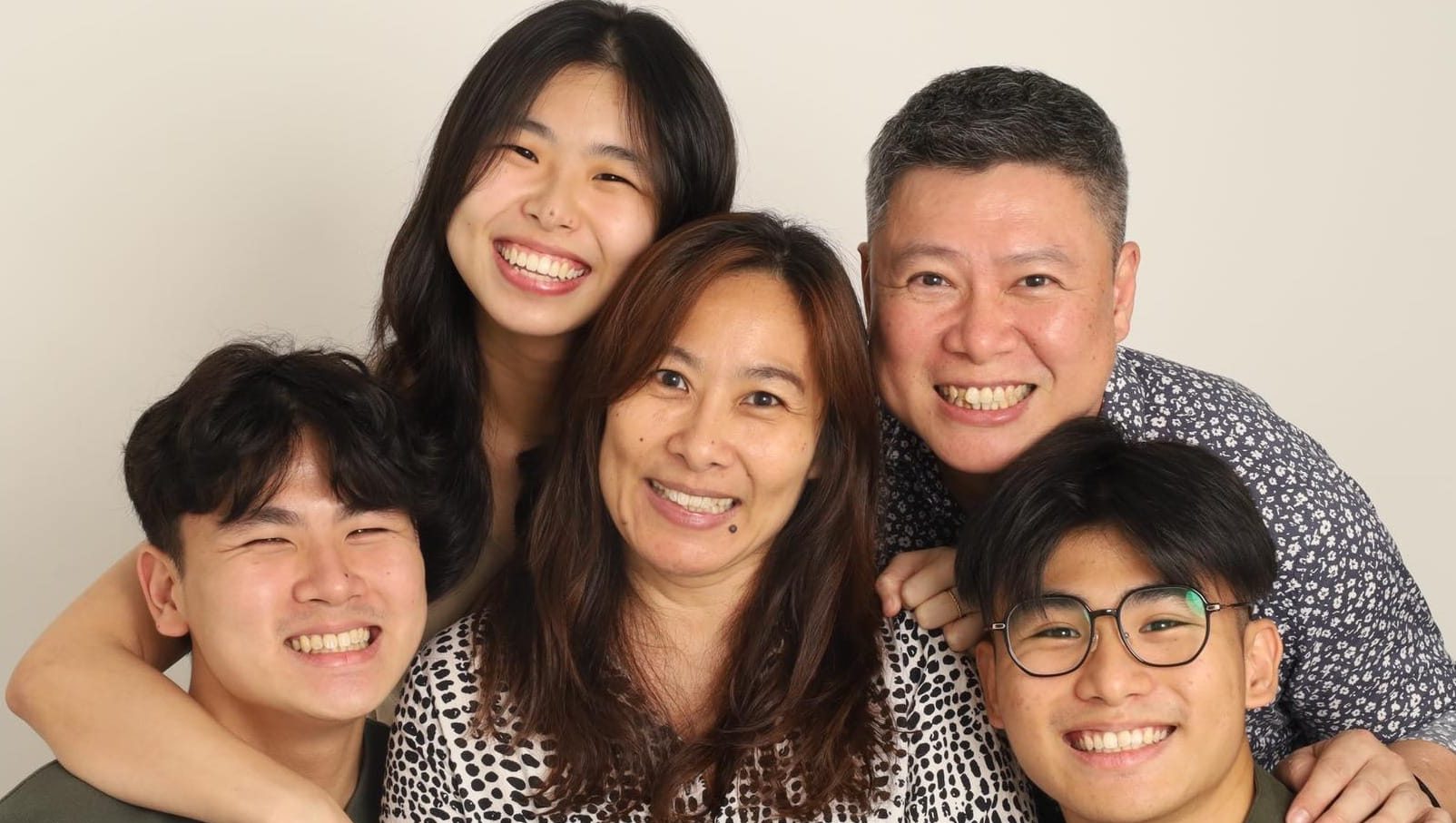“Power in a marriage is not the problem. The problem is dominance”: Family counsellor Benny Bong
Gabriel Choo // April 12, 2021, 4:45 pm

Conflict in a marriage could lead to control, which could spiral into abuse and violence, said family therapist Benny Bong in webinar, The Balance of Power in Marriage, held as part of Singapore Bible College's Counselling Week. Photo by Charl Folscher on Unsplash.
In the midst of a church service, a man marched down the aisle, grabbed his wife by her hair, and dragged her out of the church. The other parishioners were stunned. But no one did anything.
A few days later, the cell group met as they usually do at the couple’s home. No one said anything.
“It was as if the violence that everybody saw didn’t happen. It was like they developed blinkers. Just imagine how ashamed the wife was – and how alone she must have felt because no one said anything,” recounted family counsellor Benny Bong.
“Unresolved conflict can be a slippery slope to abuse and violence.”
Bong related this true account during an online webinar, The Balance of Power in Marriage, which was held as part of the Singapore Bible College Counselling Week in February.
He shared how unresolved conflict can be a slippery slope to abuse and violence. He also talked about how the church community should understand the often hidden issues that constitute abusive behaviour so that they can provide support for those who experience domestic violence.
Bong, the director of The Family Therapist, has more than 35 years of counselling experience. He is also a founding member of Society Against Family Violence Singapore (SAFVS). Here are some of the perspectives Bong shared at the webinar:
Balancing act
From managing money matters to making decisions over the children, “all couples struggle with the issue of sharing power and organising a hierarchy where areas of control and responsibility are divided between the spouses”, said Bong, quoting Cloé Madanes, a leading pioneer in field of family and marital therapy.
Bong gave a spectrum of examples of how couples tend to work out a balance.
On one end, there is a “happy coincidence with an alignment of views, values, and thinking along the same wavelength”. Couples with differences work them out by talking about each other’s expectations and roles.
If grief arises, some couples learn to talk about it, solve it, sometimes on their own, sometimes with the help of a third party.
At the other extreme are spouses who gravitate into fixed dominant-submissive roles, or worse, one partner uses coercion, threats or violence to get their way.
“When conflict is resolved in a way that one party takes control over the other, it develops from conflict to control.”
“When couples don’t cope with the imbalance of power, there could be serious negative consequences,” said Bong.
The disempowered spouse could feel like “they have no sense of having their own voice”, “invisible in the relationship” and “their personhood diminished”. Hurt could lead to profound sadness which, if not addressed, could lead to depression.
Feelings of shame and embarrassment could lead them into isolating themselves from others. Or this isolation may be imposed by the dominant spouse. Isolation is strongly linked to violence.
“If nothing is done to stop violence in an intimate relationship, studies show that one end point is the death of one of these individuals,” said Bong, adding that men may also be the victims.
“This is not a battle between the sexes. Violence is wrong, no matter who uses it.”
The dominant spouse may have an “inner insecurity” whether their spouses would listen to them or be loyal if they communicated in another way that is not forceful.
Regardless of religion
The tense home environment can affect others in the household, including elderly parents and children who have to “dance around” to pacify the dominant spouse and figure out ways “not to rock the boat”.
Children may have a mix of sympathy or unhappiness towards the disempowered parent. They may avoid going home to escape the conflict.
“They learn from the dominant parent that anger is a productive behaviour to get what they want,” said Bong.
The increase in domestic violence during the Covid-19 pandemic has been well reported around the world as it became mandatory for families stay at home during lockdowns.
“When control becomes disproportionate or when the use of methods to assert control is harmful, it becomes abusive.”
However, there has been an “alarming drop in the number of hotline calls”. There were fewer opportunities for victims to phone for help as the aggressors were also at home, said Bong, citing an overseas study.
There is no significant difference between the prevalence of violence and whatever religion observance a family may have, said Bong, pointing to overseas and local research on the Christian community.
“Instead, Christians tend to remain or return to unsafe relationships, apply tolerance and forgiveness, use Christian symbols and religious language to explain or tolerate abuse,” said Bong.
According to a 10-year study of Christian Church Support for Victims published in 2018 in the Journal of Interpersonal Violence, parishioners wanted the clergy to be more educated about family violence. Parishioners also wanted the clergy to respond instead of referring them to other professionals.
“As a church, we need to first understand issues such as knowing what constitutes as violent behaviour. It is important to be properly equipped so that we can help the victims,” said Bong.
From conflict to abuse
“Violence just doesn’t happen out of the blue. There is a whole chain reaction that has taken weeks, months, even years to develop,” said Bong.
It begins with a simple disagreement or conflict. When conflict is not resolved – or if it is resolved in a way that one party takes control over the other – it develops from conflict to control.
“Relationships become abusive when one party chooses to exert control in an inappropriate manner using inappropriate means.”
“When the control become disproportionate, or when the use of methods to assert control is harmful, it becomes abusive. If abuse does not stop, it then can become violent in nature. There is a long, straight line between conflict and violence,” said Bong.
SAFVS takes this message to schools and communities, to help newly-dating couples to be aware of this line, and to talk about their relationship when conflict arises.
“If the issue cannot be resolved in an amicable fashion, and you find that your partner wants more control over you, then that is a relationship you need to think carefully about,” advised Bong.
Below the surface
Visible physical and sexual violence is just “the tip of the iceberg”, Bong says. It is important for the community to be aware of “a whole larger chunk of the iceberg that is invisible below the waterline”.
Bong added that the bulk of what has been going on are different types of abusive behaviour. They include putting their spouse down, controlling what they do, and making them feel afraid. These are represented by the different spokes in a concept known as the Power and Control Wheel.

The Power and Control Wheel illustrates tactics that abusers typically use to instill fear and submission. The concept was developed by staff at the Domestic Abuse Intervention Project in the US in 1984.
“They are different ways in which relationships can turn from controlling into abusive. Relationships become abusive when one party chooses to exert control in an inappropriate manner using inappropriate means,” said Bong.
Power questions
Bong also answered questions raised by participants of the webinar. Here are some of them:
The biblical mandate for leadership in the family rests on the husband as the head. How does this work out, especially in the case of a more domineering wife?
The leadership of the family rests on Christ as the head of the family.
Yes, the husband is the head of the family, but he is only head because he acknowledges that Christ is the head. The husband is only the figurehead, standing in for Christ Himself (Ephesians 5:21-24).
The responsibility is on the husband to exercise the mandate, not the power. The power is meant to empower him to do something. What is he supposed to use that power for? We should be focusing on that.
There are some women who struggle with not challenging the dominance of the husband even though they have strengths they want to share. The husband may think that because he’s the head of the family, he should make the decisions even if she has more understanding of the matter.
“The responsibility is on the husband to exercise the mandate, not the power.”
To the husbands of such wives: We need to feel secure not by having dominance and control, but security and stability in a marriage based on a good understanding of each other.
If you know your better half is capable in some areas, make good use of it. It is like in a business: When you use the strengths of a partner, that is a formula for success.
For husbands where the wife is domineering and takes control, this can mean a bigger exercise in patience. It’s not just that she has the power; she may want to assert herself. Some form of discussion or openness is called for.
I would suggest that the husband say: “I would appreciate it if we discuss some of these areas, even though I know you feel you have greater knowledge and understanding of this matter. Not so much because I want to have my ego stroked, but because it doesn’t sit so much in line with my understanding of what the Scripture calls for.”
Is power imbalance grounds for divorce if things cannot be resolved?
There are imbalances in many ways but power imbalance does not equate permission to divorce.
“Power imbalance does not equate permission to divorce.”
I would like to ask the couple how they experience this imbalance. Has there been abuse? Has there been undermining of one’s personhood by the other? That is a more important criteria.
A lawyer who became a pastor and counsellor gave the clearest response to the struggle between divorce and domestic violence: When there is a choice between upholding the institution of marriage and upholding the institution of life, the institution of life prevails.
But imbalance of power does not always equal to abuse or threat to one’s life.
Sometimes the church does not have a concrete answer to concerns about family violence. How can this be addressed?
The congregation should not expect the clergy to be knowledgeable in all areas. Which is why churches appoint experts in different areas to look after certain issues.
“When there is a choice between upholding the institution of marriage and upholding the institution of life, life prevails.”
We need to engage experts in the field who have biblical beliefs aligned with the community to share knowledge and work together with them.
SAFVS has an open invitation to any faith group who wants to address or equip their congregation to respond to such issues. We are happy to come alongside to train, share knowledge and work with the community to see what kind of training is needed and how to package it.
The Social Service Institute offers a three-day followed by a five-day course on the Introduction to Management of Family Violence.
Can an abusive person in the marriage truly change?
Yes, and I’m not just talking about a superficial change.
“What we want is a true transformative change.”
When Singapore changed its laws pertaining to domestic violence and strengthened it in 1997, in general, the level of physical violence has dropped.
But there was an increase in emotional, psychological abuse; the dominant spouses now know they cannot use physical violence as that would send them to jail. The change of tactics is a change we do not want to aim for.
What we want is a true transformative change. We want to hold on to the belief when that when a person is in Christ, he can be a new creature. But it doesn’t just come about from encountering God.
Education, training, and rewiring of fixed ways of thinking also needs to happen. It is a long term work that this person needs to go through.
What if the dominant spouse does not recognise their abuse of the disempowered spouse?
There are two real possibilities: Some are unaware; some are aware but do not see a problem with it, especially if they (erroneously) believe that Scripture reinforces and legitimises their use of dominance and control.
“The faith community has a big responsibility to speak up.”
This is where the faith community comes in. When we recognise that a brother or sister is doing wrong that could lead to a crime, or is hurtful to their family, or that their family are in fear and dread – we are in the wrong to remain silent.
The faith community has a big responsibility to speak up – to speak with that individual, first one-on-one, then with a spiritual leader present. And provide support to the disempowered spouse rather than sitting silently on the fence.
What do you think about wives who are more dominant in the Christian marriage?
She could hold more power in terms of expert knowledge or position of influence. No one ever says there is a problem in the family life of (political leaders like) Angela Merkel, Margaret Thatcher or Jacinda Ardern.
I would ask the couple: Are there areas where the husband and wife have responsibilities in the marriage? How do you work that out? If you make a joint decision, how is that made? Does it hold you back from being a couple that God can use in ministry?
“We can celebrate and make good use of each person’s capabilities in the service of the Lord and still have harmony at home.”
Holding more power is not the problem. The problem is much more the dominance. You cannot resolve this by simply looking at whose bank account is bigger, who has a bigger title.
At the same time, I hope you don’t have Christian marriages that are in harmony only because these capable women are dumbing down. I have seen capable women acting as if they don’t have an opinion, or are useless.
I hope we can celebrate and make good use of each person’s capabilities in the service of the Lord and yet still have harmony in the home.
It can be a very powerful message if a marriage – known by many people as one where the wife is very capable – is harmonious, they raise children in a way that is complete, and they can still love the Lord and be ministering in a powerful way.
This webinar was held as part of the Singapore Bible College Counselling Week in February, and was reported with permission.
Where to get help for family abuse and violence:
- Call 999 if there is a risk of injury, immediate threat to life or bodily harm (relatives and friends of victims can call as well).
- A police report can be made.
- The police can also recommend centres where help can be obtained.
For victims:
- AWARE Helpline: 1800 777 5555 (Monday to Friday, 10am to 6pm); [email protected]
- Care Corner Counselling Centre (Mandarin): 1800 353 5800
- PAVE Integrated Services for Individual and Family Protection: 6555 0390
- Samaritans of Singapore: 1800-221-4444
- Society Against Family Violence Singapore
- The National CARE hotline: 1800 202 6868 (gives access to 40+ Family Service Centres)
For abusers:
- Care Corner Project Start: 6476 1482
- ComCare hotline: 1800 222 0000 (to reach a Family Service Centre near you)
- Society Against Family Violence Singapore
- PAVE Integrated Services for Individual and Family Protection: 6555 0390
- Trans Safe Centre: 6449 9088
Courts:
- A personal protection order (PPO) can be obtained to protect the family.
- This will prevent the person from using or threatening to use violence against the family.
RELATED STORIES:
Aggressors need help too: Family counsellor Benny Bong answers questions about family violence
We are an independent, non-profit organisation that relies on the generosity of our readers, such as yourself, to continue serving the kingdom. Every dollar donated goes directly back into our editorial coverage.
Would you consider partnering with us in our kingdom work by supporting us financially, either as a one-off donation, or a recurring pledge?
Support Salt&Light



